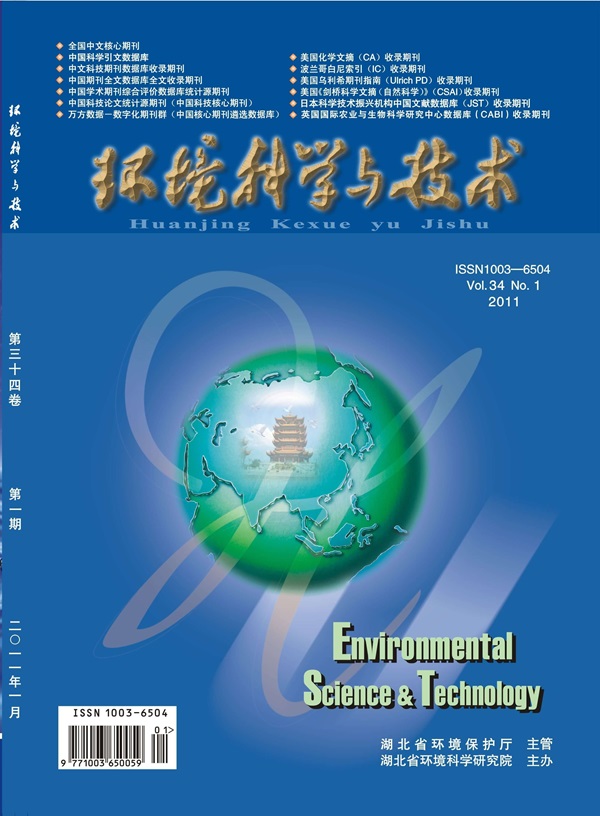Enantiomer-Dependent Uptake of Chiral Nanoparticles in Macrophages Modulates the Inflammatory Response through the NF-κB Pathway
IF 10.8
1区 环境科学与生态学
Q1 ENGINEERING, ENVIRONMENTAL
引用次数: 0
Abstract
Infectious inflammation caused by pathogens or environmental pollutants remains a major global health issue. Therefore the development of novel strategies to efficaciously control infectious inflammation is urgently required. Nuclear factor-κB (NF-κB) as the central activator of pro-inflammatory genes plays a pivotal role in infectious inflammation. Here, nanoscale chirality was designed to modulate the inflammatory response through enantiomer-dependent blockade of the NF-κB signaling pathway. Chiral gold nanoparticles (AuNPs) with good cytocompatibility were prepared through a one-pot seedless method under wild conditions, showing efficacious alleviation of lipopolysaccharide (LPS)-induced inflammation in vitro and in vivo only by AuNPs with levorotatory chirality (L-AuNPs) rather than the dextrorotatory enantiomer (D-AuNPs). Mechanism investigation elucidated that lysosomal acidification of macrophages was inhibited through a high cellular uptake of L-AuNPs due to their weak interaction energy with cell membranes. Accordingly, the NF-κB rather than mitogen-activated protein kinase pathway was blocked by L-AuNPs through the selective inhibition of p65 phosphorylation, wherein the nuclear translocation of p65 was simultaneously depressed, so the secretion of pro-inflammatory mediators was reduced significantly. This study suggests that imparting chirality to nanoparticles can provide a novel protocol to efficaciously modulate health risks arising from infectious inflammation by improving the uptake of nanoparticles with anti-inflammatory activity.

由病原体或环境污染物引起的感染性炎症仍然是一个重大的全球健康问题。因此,迫切需要开发新的策略来有效控制感染性炎症。核因子-κB(NF-κB)是促炎症基因的核心激活因子,在感染性炎症中起着关键作用。在这里,我们设计了纳米级手性,通过对映体依赖性阻断 NF-κB 信号通路来调节炎症反应。在野生条件下,通过无籽一锅法制备了具有良好细胞相容性的手性金纳米粒子(AuNPs),结果表明只有具有左旋手性(L-AuNPs)而非右旋对映体(D-AuNPs)的AuNPs才能有效缓解脂多糖(LPS)诱导的体外和体内炎症。机理研究阐明,由于 L-AuNPs 与细胞膜的相互作用能量较弱,因此细胞对 L-AuNPs 的吸收率较高,从而抑制了巨噬细胞溶酶体的酸化。因此,L-AuNPs 通过选择性抑制 p65 磷酸化,阻断了 NF-κB 而非丝裂原活化蛋白激酶通路,同时抑制了 p65 的核转位,从而显著减少了促炎介质的分泌。这项研究表明,给纳米粒子赋予手性可以提供一种新的方案,通过提高对具有抗炎活性的纳米粒子的吸收,有效地调节感染性炎症引起的健康风险。
本文章由计算机程序翻译,如有差异,请以英文原文为准。
求助全文
约1分钟内获得全文
求助全文
来源期刊

环境科学与技术
环境科学-工程:环境
CiteScore
17.50
自引率
9.60%
发文量
12359
审稿时长
2.8 months
期刊介绍:
Environmental Science & Technology (ES&T) is a co-sponsored academic and technical magazine by the Hubei Provincial Environmental Protection Bureau and the Hubei Provincial Academy of Environmental Sciences.
Environmental Science & Technology (ES&T) holds the status of Chinese core journals, scientific papers source journals of China, Chinese Science Citation Database source journals, and Chinese Academic Journal Comprehensive Evaluation Database source journals. This publication focuses on the academic field of environmental protection, featuring articles related to environmental protection and technical advancements.
 求助内容:
求助内容: 应助结果提醒方式:
应助结果提醒方式:


